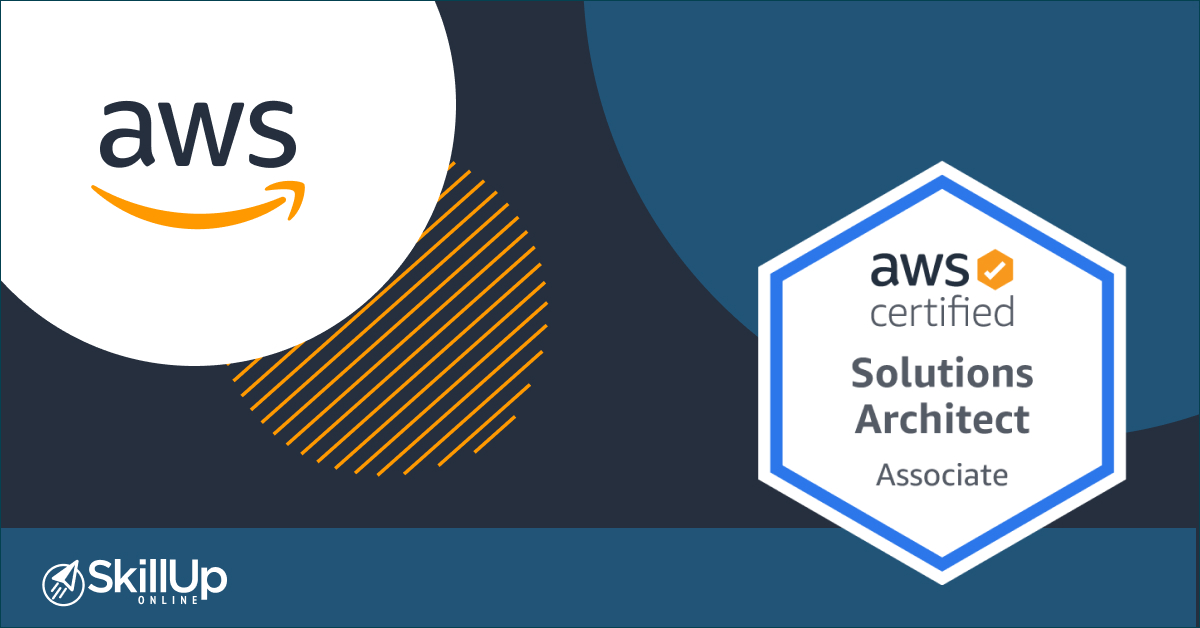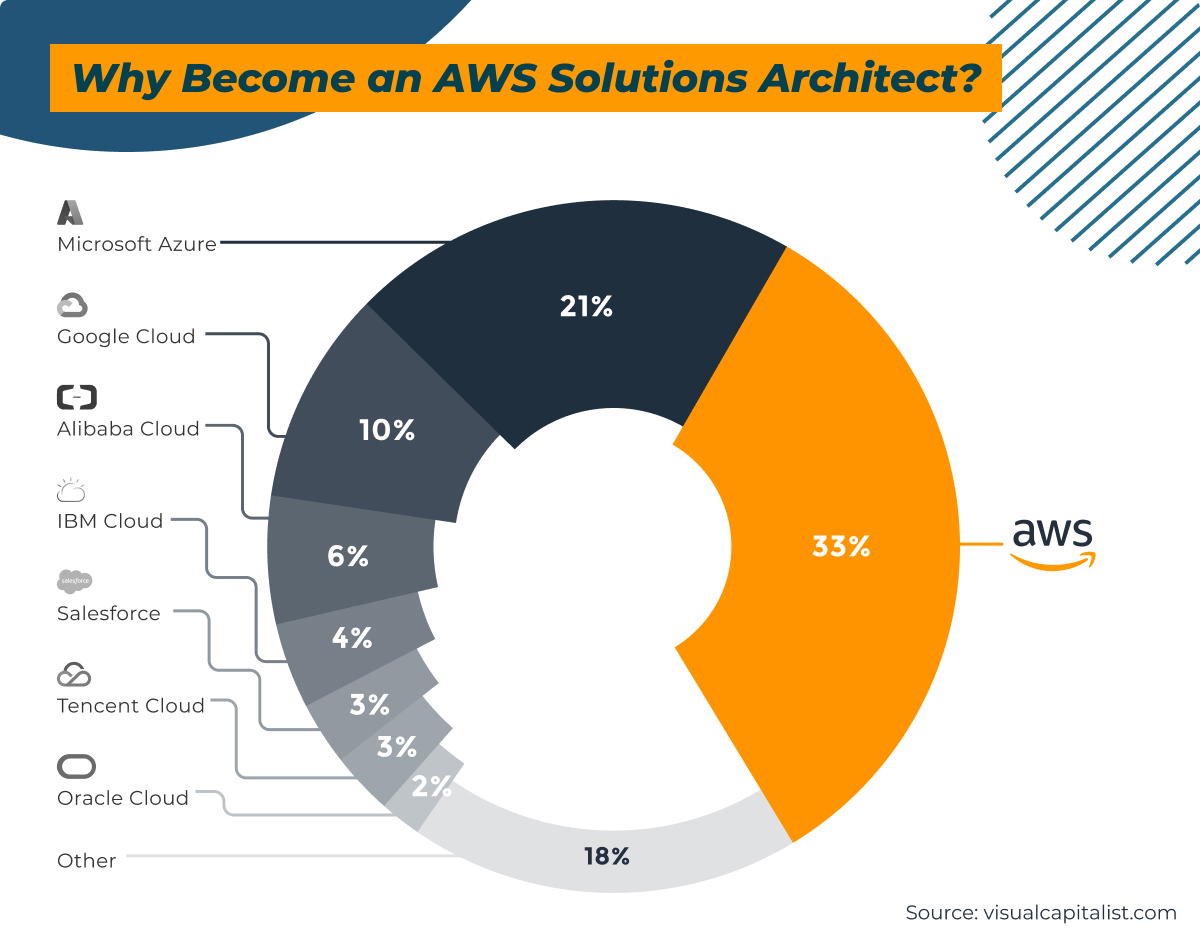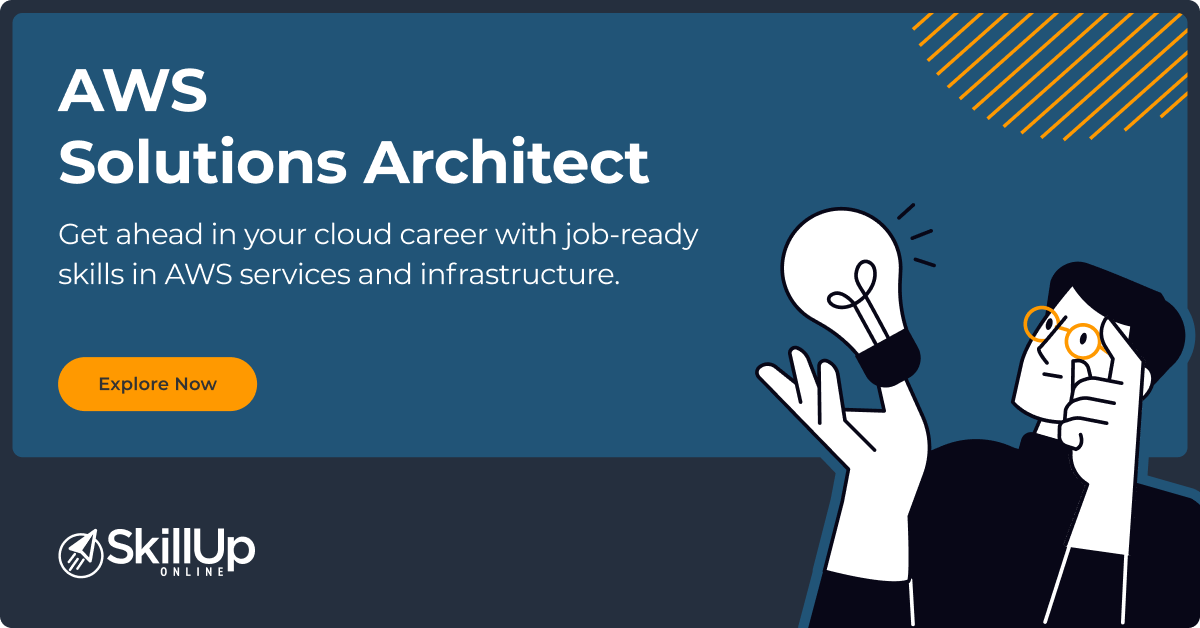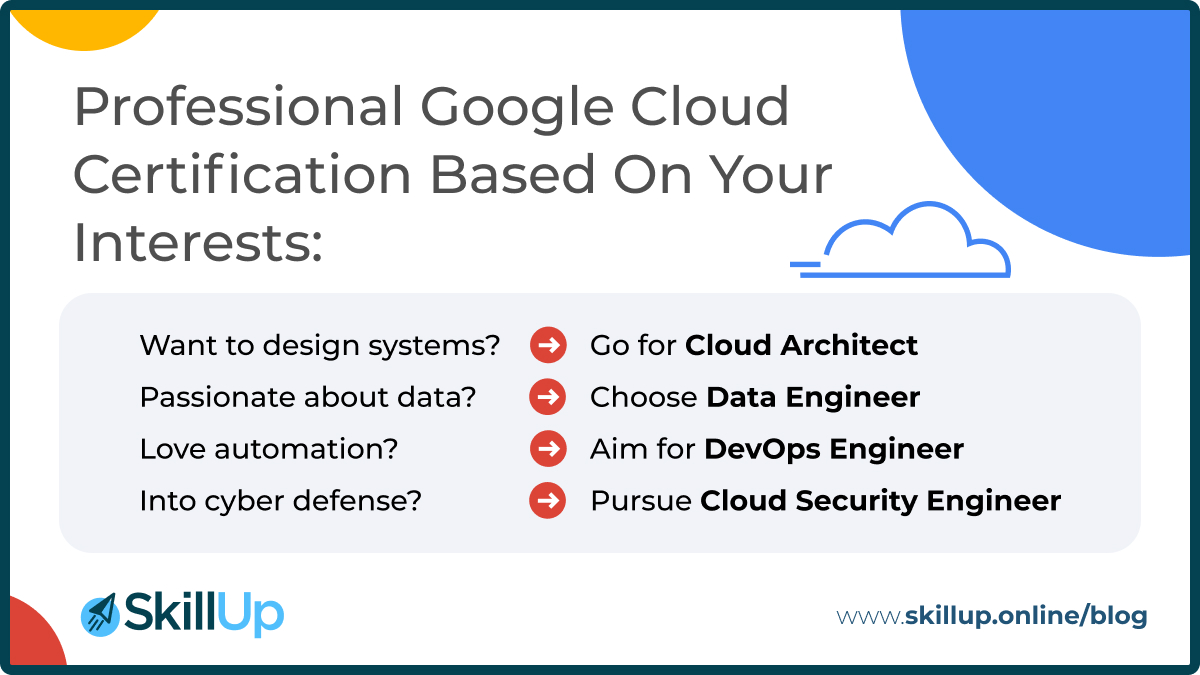AWS is one of the most dominant and in-demand cloud platforms today. The platform holds about 33% of the IaaS market, which is almost as much as the combined total of its main competitors (Microsoft Azure and Google Cloud), so even at a quick glance it’s clear that AWS skills are important for solutions architects to include on their resume.
However, when you note that more and more companies are adopting multi-cloud strategies to optimize their operations, the rationale becomes even more compelling. So, let’s investigate this further…
Why AWS?
As the tech landscape has continued to evolve, cloud computing has emerged as the backbone of modern IT infrastructure. Among the prominent players, Amazon Web Services (AWS) stands tall as the undisputed leader and is renowned for driving innovation and setting industry standards.
But why exactly should you master AWS services ? The answer lies in the rapidly increasing momentum of the multi-cloud paradigm. As organizations diversify their cloud strategies, mastering AWS not only ensures you have essential skills, but it also equips you with adaptable expertise that is transferable across industries.
In fact, the AWS market is projected to grow by a staggering compound annual growth rate (CAGR) of 12.54% between 2024 to 2030 and to reach USD 2479.84 by 2030. This indicates that AWS has not only consistently outperformed its competitors, but its extensive array of services, global reach, and commitment to security and innovation have also solidified its reputation.
Mastering AWS Services as a Solutions Architect
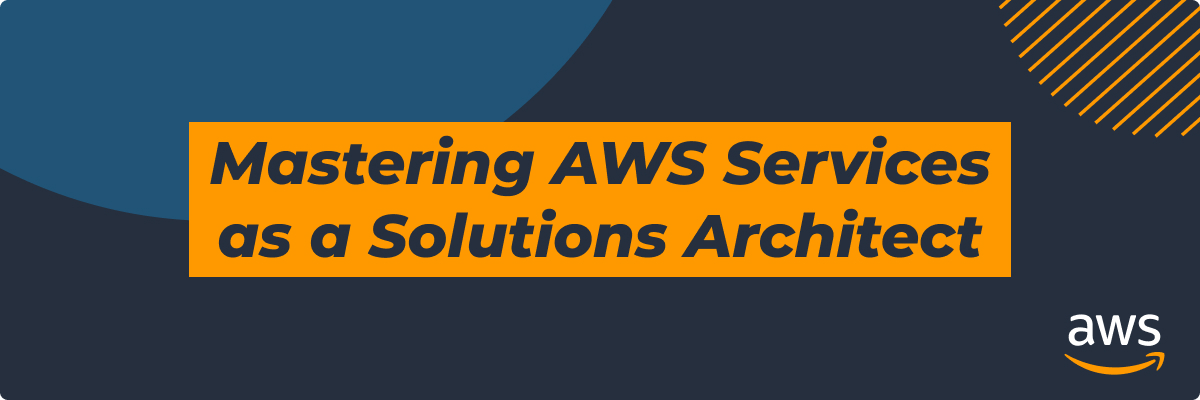
AWS offers an impressive array of cloud services, each serving as a building block to craft, deploy, and manage innovative solutions. From foundational computing and storage to advanced databases, networking, and more, AWS provides a rich landscape of resources at your fingertips. So, whether you’re a novice eager to learn or a seasoned solutions architect aiming to advance your career, mastering AWS services is crucial. But what are the AWS services that you should master? Let’s find out.
Key AWS Services You Should Master:
- Amazon EC2 (Elastic Compute Cloud): EC2 provides resizable compute capacity in the cloud. In order to become a solutions architect, you should be adept at provisioning, configuring, and managing EC2 instances, optimizing performance, and ensuring high availability.
- Amazon S3 (Simple Storage Service): When it comes to storing and retrieving vast amounts of data, S3 is a cornerstone. Solutions architects must know how to create and manage S3 buckets, apply access controls, and design architectures that leverage S3’s durability and scalability.
- AWS Lambda: Serverless computing is gaining traction for its efficiency and cost-effectiveness. As a solutions architect, you must grasp the intricacies of AWS Lambda, to enable you to design event-driven architectures that automatically trigger code execution in response to events.
- Amazon RDS (Relational Database Service): For databases, RDS simplifies administration tasks, allowing architects to focus on application design. Proficiency in RDS encompasses choosing the appropriate database engine, managing backups, and optimizing performance.
- Amazon VPC (Virtual Private Cloud): Networking forms the backbone of cloud solutions. As a solutions architect, you should excel in designing isolated networks, setting up subnets, configuring route tables, and ensuring secure communication using VPC.
- Amazon API Gateway: In the age of microservices and APIs, mastering API Gateway is crucial. Architects need to create, publish, and manage APIs securely, enabling seamless communication between services.
- Amazon CloudFront: Content delivery and edge caching are essential for optimal user experiences. Therefore, you should have a thorough understanding of CloudFront’s capabilities, and be able to integrate it to accelerate content distribution globally.
- Amazon SNS (Simple Notification Service) and SQS (Simple Queue Service): Building resilient and event-driven architectures requires expertise in SNS and SQS. So, you must know how to design solutions that ensure reliable messaging and decoupling of components.
Grasping all these concepts might appear a bit daunting, but don’t worry. With the help of online certification programs and courses, you can equip yourself with the requisite skillset quickly and effectively. However, it is essential to opt for courses and programs that are offered by industry experts and provide hands-on experience via labs and projects. These projects and labs give you an edge over other candidates and help you demonstrate your practical skills to prospective employers.
So, if you’re already working in the cloud, the best thing is to take a course that contains all the important AWS services and infrastructure in its curriculum and directly builds your skills as an AWS solutions architect. However, if you’re still trying to build multi-cloud expertise, you could enroll on a program on cloud computing that covers all the major platforms I.e., AWS, Microsoft Azure, and Google Cloud instead. The route you take obviously depends on your level of experience to date.
How to Acquire AWS Certification

While courses and programs will provide you with the necessary skills, knowledge, and practical experience, certifications will help you prove your expertise.
Therefore, gaining certification and becoming an AWS certified solutions architect will act as a testament to your proficiency in cloud computing. The most common route to AWS certification is through exams that validate your knowledge across various AWS services and concepts. For solutions architects, there are two levels of exams to take, the AWS Certified Solutions Architect – Associate exam and AWS Certified Solutions Architect- Professional exam.
These exams are designed to assess your understanding of real-world scenarios, architecture best practices, and cloud implementation strategies. In order to prepare for these exams, it speeds things up if you take online courses and programs that cover the relevant topics. However, you can also access free exam guides, webinars, sample questions, practice papers and digital training on the official site of Amazon.
Whatever approach you take, though, it is important to have a well-strategized approach for the preparation of these exams to ensure success.
Follow these steps to succeed in the exams:
- Follow a structured study plan: Develop a well-organized study plan for effective preparation.
- Get hands-on practice: Dedicate time to hands-on practice to gain practical experience.
- Pursue scenario-based learning: Immerse yourself in scenario-based learning to understand how different services interact.
- Work on community engagement: Stay connected with AWS communities for valuable insights and support.
- Complete practice tests: Solve practice tests to become familiar with exam conditions and identify areas for improvement.
- Heeds these exam day tips: On the exam day, maintain a calm approach, read questions carefully, and answer confidently.
By adhering to these steps, you’ll not only earn your AWS certification but also emerge as a confident solutions architect, ready to navigate the intricate landscape of cloud computing.
A Final Word
As you can see, learning AWS services is a transformative step that will boost your career growth. As businesses increasingly rely on cloud solutions, mastering AWS will equip you to craft innovative, scalable, and secure infrastructures. But the role of an AWS solutions architect not only offers career growth but also opens doors for rewarding salaries; note the average salary of an AWS solutions architect is $130,000 per year in the United States. And with the help of online courses and programs, you can build the requisite skills and work towards a successful career as an AWS solutions architect quickly and effectively.

If you would like to know more about how you can build the necessary skills and get started as an AWS solutions architect, contact our Learner Support Team at [email protected]. They will be more than happy to guide you on the next steps you can take.
SkillUp Online
